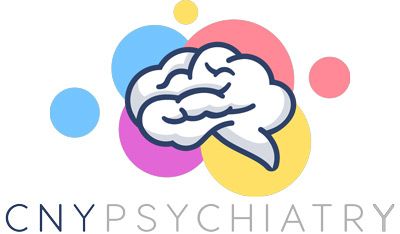Diet & Mental Health
Jason Stepkovitch • August 13, 2020


Does What We Eat Impact Our Emotional Health?
If I do decide to diet, what is the diet best suited to not only facilitate a healthy weight, better physical health, but also one that is good for my brain?
The area of nutritional psychiatry, a relatively young field, seeks to answer questions such as these. We know that several nutrients are good for brain health: omega three fatty acids, magnesium, zinc, vitamins B12 and folate, as well as vitamin D, amongst others. Amongst the various diet plans, the diet with the best available data on promoting brain and body health is a diet called the modified Mediterranean diet. The Modi-Medi diet, as it is commonly referred to, is a diet rich in variety: heavy on fresh fruits and vegetables, fish, lean meat, olive oil, legumes and nuts, with less of an emphasis on simple carbohydrates, processed meats and foods, and saturated fats.
A recent study, known as the SMILES study, looked at the implications the Modi-Medi diet has on depression. In the trial, 67 patients, all of whom suffered from clinical depression, were broken into two groups: a group of individuals who adhered to the Modi-Medi diet, and the “control” group. The group that committed to the healthy diet experienced a 32 percent remission rate of their depression, compared to an 8 percent remission rate in the control group.
I think it’s important to put a study such as this in context. The study is not implying that diet alone is a substitute for psychotherapy, medications, or other interventions like TMS. I believe, however, that the study does show that relying solely on “standard” treatment, without committing oneself to better living, including ensuring that our brains have the basic nutritional building blocks necessary to facilitate optimal neuronal functioning, will limit the outcomes of treatment.
Changing entrenched eating habits can be difficult, so it’s important to be kind to ourselves and forgiving if we adhere to any healthy diet plan imperfectly. This is particularly true when the fatigue and lack of motivation seen in depression gets in the way. I believe that what is important is that we have committed to living better, not just feeling better, and that we are making a good faith effort to make positive changes in our lives. Eating as well as possible is a big part of this. If changing poor eating habits seems like a monumental task, working in psychotherapy to address the behavioral components related to unhealthy eating patterns can improve the odds of adhering to a healthy diet like the modified Mediterranean diet, and not just in the short run, but well into the future.
Request a free consulTation
Blog Page Contact Us
We will get back to you as soon as possible.
Please try again later.
OUR RECENT BLOG ARTICLES
READY TO WORK WITH US?
SCHEDULE AN APPOINTMENT
CNY TMS Psychiatry is a Certified TMS Therapy provider for the greater Onondaga and Broome county areas in Upstate New York. We're your local experts for TMS, Ketamine, Psychotherapy, and Esketamine.
Quick Links
Contact Us
Phone: 315-671-2140
Fax: 315-673-5052
Email: Info@cnytms.com
Clinic Location in CNY:
31 E Main St. Marcellus, NY 13108
All Rights Reserved | CNY Psychiatry





